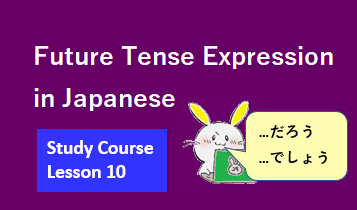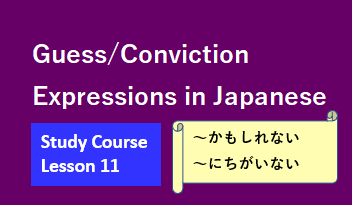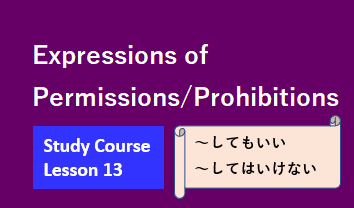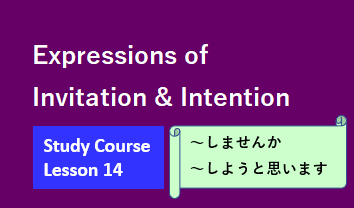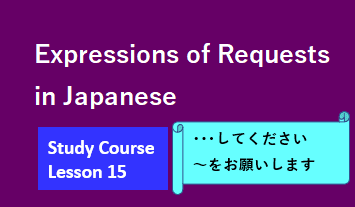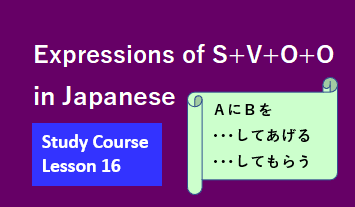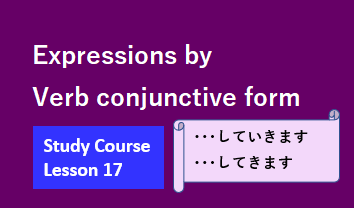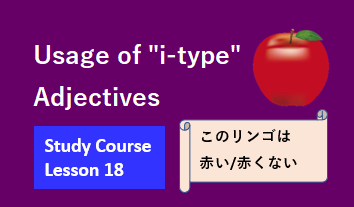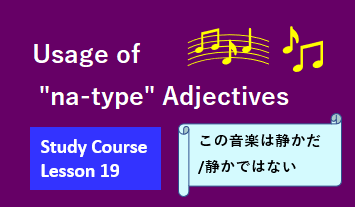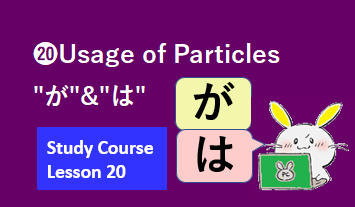Japanese Study Course Lesson12

Hello everyone. I'm JJ. Nice to meet you! Welcome to Japanese Study Course. In lesson 12, we will study the expressions of desire, such as "I want to…" and "I wanted to…". For example, if you want to say, "I want to go on a trip with my friends during the summer vacation." in Japanese, you would politely say "私は夏休みに友達と旅行がしたいです。".
12-1 Expressions of desire (Present tense)
(1)Affirmative form
Expressions of desire (Affirmative)➡ " Verb( consecutive form )+たい "
- I want to go on a trip with my friends during the summer vacation.
- Ordinary:私は夏休みに友達と旅行がしたい。
- Politely:私は夏休みに友達と旅行がしたいです。
- Adding "です" at the end of the sentence makes it more polite.
◆Detailed explanation
- Ordinary:私は夏休みに友達と旅行がしたい。
- Polite:私は夏休みに友達と旅行がしたいです。
- 私(title)+は(title particle)
- +夏休みに(time)
- +友達(object)+と(objective particle, together)
- +旅行(subject)+が(nominative particle)
- +し(verb"する", consecutive form)+たい(auxiliary verb, desire)/ +し(verb"する", consecutive form)+たい(auxiliary verb, desire)+です(auxiliary verb, polite affirmation)。
◆Vocabulary note
| 夏休み:(noun) summer vacation 友達 :(noun) friend と :(objective particle, together) with/together 旅行 :(noun) trip |
◆Advanced Study Objective particle "と" ➀:with/together
- The objective particle of this usage is used to follow a noun and indicate a person who performs an action together.
- It is used in the form of "noun(object, person) + と".
- For example, She married Mr. Tanaka, a senior at university. 彼女は大学の先輩の田中さんと結婚しました。
- I want to go on a trip with my friends during the summer vacation. 私は夏休みに友達と旅行がしたいです。
(2)Negative form
Expressions of desire (Negative) ➡ " Verb( consecutive form )+たくない "
- I am so tired today that I don't want to go anywhere.
- Ordinary:私は今日、大変疲れているので、どこにも行きたくない。
- Politely:私は今日、大変疲れているので、どこにも行きたくないです。
- Adding "です" at the end of the sentence makes it more polite.
◆Detailed explanation
- Ordinary:私は今日、大変疲れているので、どこにも行きたくない。
- Polite:私は今日、大変疲れているので、どこにも行きたくないです。
- 私(subject)+は(nominative particle)
- +今日(time)+大変疲れているので(phrase for reason)、
- どこにも(place)
- +行き(verb"行く", consecutive form)+たく(auxiliary verb"たい", negative form, desire)
- +ない(auxiliary verb, negation)/ +ない(auxiliary verb, negation)+です(auxiliary verb, polite affirmation)。
- ※「大変疲れているので(phrase for reason)」➡大変(adverb)+疲れて(verb"疲れる", situational form)+いる(auxiliary verb)+ので(conjunction)
◆Vocabulary note
| 大変 :(adverb) very/so 疲れる :(verb) get tired 行く :(verb) go |
◆Advanced Study どこ(demonstrative pronoun)+にも(collocation)
| どこにも | Category: どこ(demonstrative pronoun)+にも(collocation) Meaning: not ・・・ anywhere Advanced commentary: どこにも(place)➡どこ(demonstrative pronoun)+にも(collocation:objective particle"に"+adverbial particle"も") |
12-2 Expressions of desire (Past tense)
(1)Affirmative form
Expressions of desire (Past tense affirmative) ➡ " Verb( consecutive form )+たかった "
- She and her sister wanted strawberry shortcake.
- Ordinary:彼女と彼女の妹はイチゴのショートケーキが食べたかった。
- Politely:彼女と彼女の妹はイチゴのショートケーキが食べたかったです。
- Adding "です" at the end of the sentence makes it more polite.
◆Detailed explanation
- Ordinary:彼女と彼女の妹はイチゴのショートケーキが食べたかった。
- Polite:彼女と彼女の妹はイチゴのショートケーキが食べたかったです。
- 彼女と彼女の妹(title)+は(title particle)
- +イチゴのショートケーキ(subjectt)+が(nominative particle)
- +食べ(verb"食べる", consecutive form)
- +たかった(compound auxiliary verb, past tense of desire expression)/ +たかった(compound auxiliary verb, past tense of desire expression)+です(auxiliary verb, polite affirmation)。
◆Vocabulary note
| 妹 :(noun) younger sister イチゴ :(noun) strawberry ショートケーキ:(noun) shortcake |
◆Advanced Study Objective particle "と" ➁:A and B
- The objective particle of this usage is used to line up two or more nouns together and indicate the meaning "&"
- It is used in the form of "noun + と +noun".
- For example, My friend and I went shopping together yesterday. 私と私の友達は昨日、一緒に買い物に行きました。
- She and her sister wanted strawberry shortcake. 彼女と彼女の妹はイチゴのショートケーキが食べたかったです。
◆Advanced Study たかった(compound auxiliary verb, past tense of desire expression)
| たかった | Category: compound auxiliary verb, past tense of desire expression Meaning: wanted Advanced commentary: たかった➡たかっ(auxiliary verb"たい", past tense form, desire)+た(auxiliary verb, past tense) |
(2)Negative form
Expressions of desire (Past tense negative) ➡ " Verb( consecutive form )+たくなかった "
- She didn't want to be told, "You look like your father."
- Ordinary:彼女は「父親と似ているね」と言われたくなかった。
- Politely:彼女は「父親と似ているね」と言われたくなかったです。
- Adding "です" at the end of the sentence makes it more polite.
◆Detailed explanation
- Ordinary:彼女は「父親と似ているね」と言われたくなかった。
- Polite:彼女は「父親と似ているね」と言われたくなかったです。
- 彼女(subject)+は(nominative particle)
- +「父親と似ているね」(object)+と(objective particle, quotation)
- +言われ(verb"言われる", consecutive form)+たく(auxiliary verb"たい", negative form, desire)
- +なかった(compound auxiliary verb, Past tense negation)/ +なかった(compound auxiliary verb, Past tense negation)+です(auxiliary verb, polite affirmation)。
- ※「『父親と似ているね』(object)」➡『父親(object)+と(objective particle, Judgment of difference)+似て(verb"似る", situational form)+いる(auxiliry verb, situation)+ね(speech particle)』
◆Vocabulary note
| 父親 :(noun) father 似ている:(verb) look like 言われる:(verb) be told |
◆Advanced Study Objective particle "と" ③:quotation
- The objective particle of this usage is used when quoting the content of a story, thought, etc.
- It is used in the form of "「・・・」+ と ".
- For example, The kanji for "隆翔" is read as "ryusho". 「隆翔」という漢字は「りゅうしょう」と読みます。
- She didn't want to be told, "You look like your father." 彼女は「父親と似ているね」と言われたくなかったです。
◆Advanced Study Objective particle "と" ④:Judgment of difference
- The objective particle of this usage is used to represent a criteria for judging whether there is any difference.
- It is used in the form of "noun + と ".
- For example, That notebook is the same size as mine. あのノートは私のノートと同じサイズです。
- She didn't want to be told, "You look like your father." 彼女は「父親と似ているね」と言われたくなかった。
Did you understand the four usages of the objective particle "と"?


Today's lesson ends here. Ladies and gentlemen, did you understand today's theme "Expressions of desire"? Next time, we will study "Expressions of Permissions and Prohibitions". See you!
See you next time!

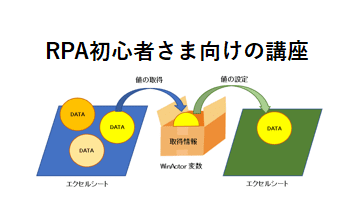

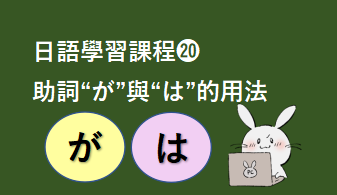





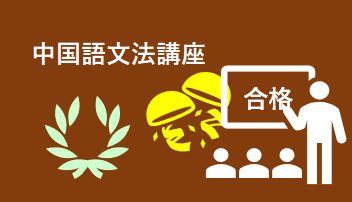
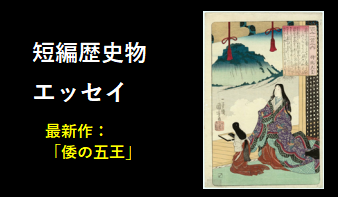
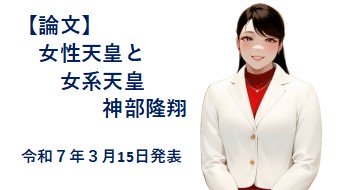
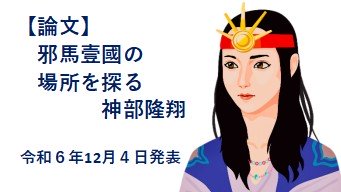


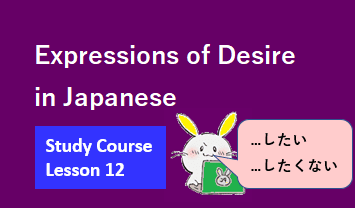

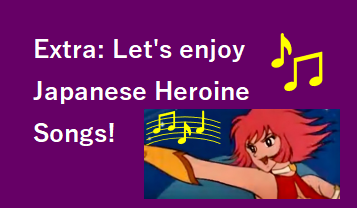
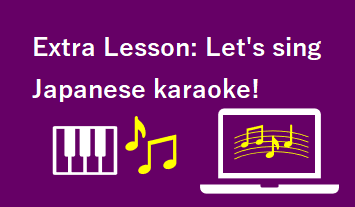
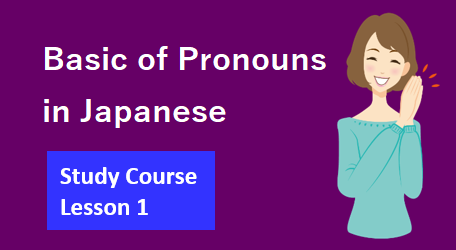
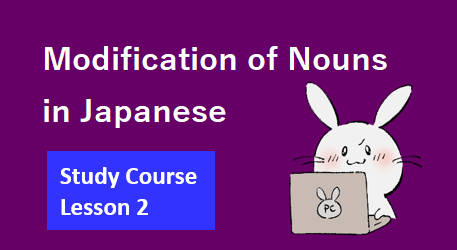

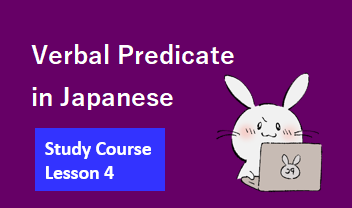
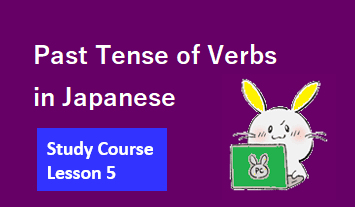
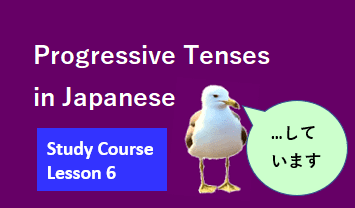
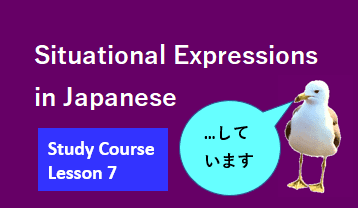
![❽Possible Expressions [1]](https://ryusho-kanbe.com/wp-content/uploads/2023/04/スクリーンショット-2023-04-03-100754.png)
![❾Possible Expressions [2]](https://ryusho-kanbe.com/wp-content/uploads/2023/04/スクリーンショット-2023-04-28-095816.png)
